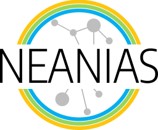The scientific work “MARIDA: A benchmark for Marine Debris detection from Sentinel-2 remote sensing data“, with the support of NEANIAS project, has been published in PLOS Journals.
"MARIDA: A benchmark for Marine Debris detection from Sentinel-2 remote sensing data".
- Authors: Katerina Kikaki, Ioannis Kakogeorgiou, Paraskevi Mikeli, Dionysios E. Raitsos, Konstantinos Karantzalos.
Abstract
Currently, a significant amount of research is focused on detecting Marine Debris and assessing its spectral behaviour via remote sensing, ultimately aiming at new operational monitoring solutions. Here, we introduce a Marine Debris Archive (MARIDA), as a benchmark dataset for developing and evaluating Machine Learning (ML) algorithms capable of detecting Marine Debris. MARIDA is the first dataset based on the multispectral Sentinel-2 (S2) satellite data, which distinguishes Marine Debris from various marine features that co-exist, including Sargassum macroalgae, Ships, Natural Organic Material, Waves, Wakes, Foam, dissimilar water types (i.e., Clear, Turbid Water, Sediment-Laden Water, Shallow Water), and Clouds. We provide annotations (georeferenced polygons/ pixels) from verified plastic debris events in several geographical regions globally, during different seasons, years and sea state conditions. A detailed spectral and statistical analysis of the MARIDA dataset is presented along with well-established ML baselines for weakly supervised semantic segmentation and multi-label classification tasks. MARIDA is an open-access dataset which enables the research community to explore the spectral behaviour of certain floating materials, sea state features and water types, to develop and evaluate Marine Debris detection solutions based on artificial intelligence and deep learning architectures, as well as satellite pre-processing pipelines.
Funding
Part of this research has been supported by the European Regional Development Fund of the European Union and Greek national funds through the Operational Program Competitiveness, Entrepreneurship, and Innovation, under the call RESEARCH–CREATE–INNOVATE (project code: T1EDK-02966). This work has also been supported by NEANIAS, funded by the European Union’s Horizon 2020 research and innovation programme, under grant agreement No 863448. There was no additional external funding received for this study. The funders had no role in study design, data collection and analysis, decision to publish, or preparation of the manuscript.
The work
Get this peer reviewed reserch article at https://doi.org/10.1371/journal.pone.0262247.
